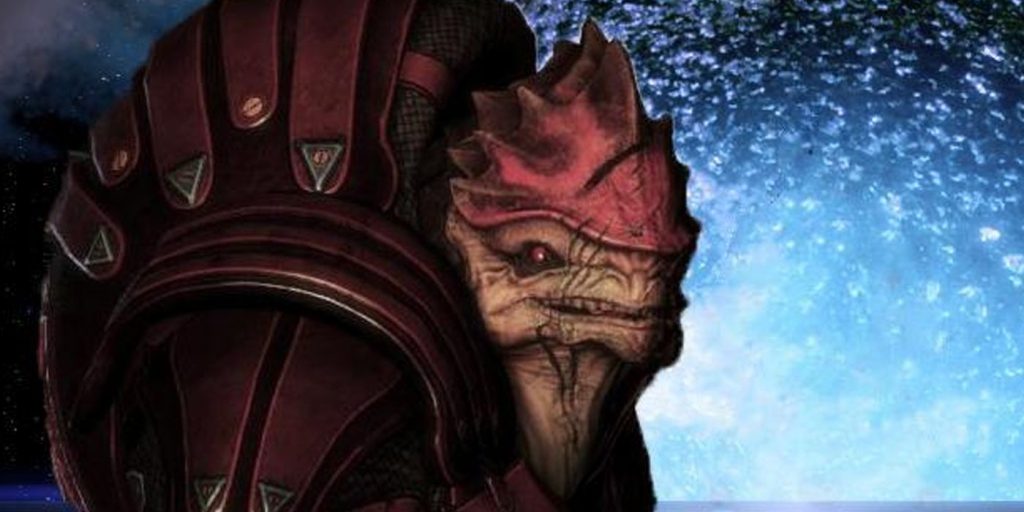Yesterday, EA unveiled a selection of stats based on our collective Mass Effect: Legendary Edition playthroughs, including percentages of the various choices we all made. For example, most of you played as a male Shepard Soldier, but I’ve already written about why that’s a bad choice – both before the game launched, and earlier today in the wake of the new stats. I’m not here to talk about that for a third time – although seriously, Soldier class? You don’t have enough shooty bang in every other game ever? No, I’m here to talk about the actual decisions we made, and the inherent flaws in remastering a choice-based RPG like Mass Effect.
The choices on whether Wrex survives Virmire, whether you save the Rachni Queen, whether you ally with the Rachni Queen two games later, whether you cure the Genophage, and whether you save Tali from exile all have a split in the 93rd percentile or higher. Even in the Mass Effect 3 dilemma between siding with the geth or the quarians, 80 percent of players managed to broker peace. For the record, everyone made the correct choice here. The majority of us saved Wrex, saved and allied with the Rachni Queen, cured the Genophage, and ensured Tali was pardoned as part of the most perfect mission ever designed. While brokering peace is more difficult – hence 80 percent of people accomplishing it as opposed to an enormous 96 percent curing the Genophage – it is the ‘best’ option.
Related: Shohreh Aghdashloo On The Expanse, Mass Effect, And The Importance Of Diversity
Mass Effect is a choice-based game, and as such, as long as you can justify your decisions, you made them correctly – but hindsight colours things differently. For example, when you’re faced with the option to shoot Wrex, you’re supposed to be carefully considering what damage a krogan warlord could do to you and your cause once he discovers your mission includes potentially setting back research into the Genophage – the disease killing his people. However, in the Legendary Edition, we know the score. If you spare Wrex, he soon sees the light, and ends up being a key figure in the krogan reunification efforts in the next two games.
Likewise, the Rachni Queen is supposed to be a difficult choice. Her people have the potential to cause genocide, as they have done previously. But in killing her, you doom her own race to extinction. Is this an opportunity to show the galaxy we can be better, or is sparing her foolish naivety that hurts the galaxy right when we’re at our most vulnerable? It’s a fascinating moral dilemma – except it isn’t. We know that the former option is true – the Rachni become an important ally. Everyone who played the game the first time around knows this, and everyone who didn’t can just look up “should I save the Rachni Queen?” and will discover the right answer.
This probably explains a much wider percentage split in a slightly different choice. In Mass Effect 3, you’re asked to save the Rachni Queen again. 93 percent of players who saved her in the first Mass Effect (that’s also a 93-7 split, for what it’s worth) did so again in Mass Effect 3 – this is the best option in that it’s morally good, but it also means she joins the war efforts. Leaving her to die has no consequences beyond her death – she doesn't even begrudge you the decision. However, amongst the seven percent of players who originally let her die, 67 percent kill the Reaper clone version, while 33 percent – foolishly, since it ends up killing Alliance officers before being put down – try to save it. This increase likely comes from players realising they made the wrong call in the first game, but not thinking to look up the ramifications of trying to correct it in Mass Effect 3.
I adore Mass Effect – Mass Effect 2 is my favourite game ever. But these stats highlight that there is a clear right and wrong option to many of the choices you make within the game. That’s a huge flaw for a choice-based game to have, and one that a remaster only serves to highlight.
Part of the issue is with us, of course. We know what the ‘correct’ options are, and we always make them, even when it means our Shepard has to act out of character by leaning into Renegade or Paragon tendencies that don’t suit them. Whenever we don’t know, we look it up. We don’t trust our gut or think WWSD (What Would Shepard Do?) – we pause the game, get out our phones, and ensure that our playthrough remains pristine.
It’s just not the way Mass Effect was meant to be played. Maybe I’ll kill Wrex next time.
Next: Starfield Needs To Avoid Mass Effect’s Biggest Problem
